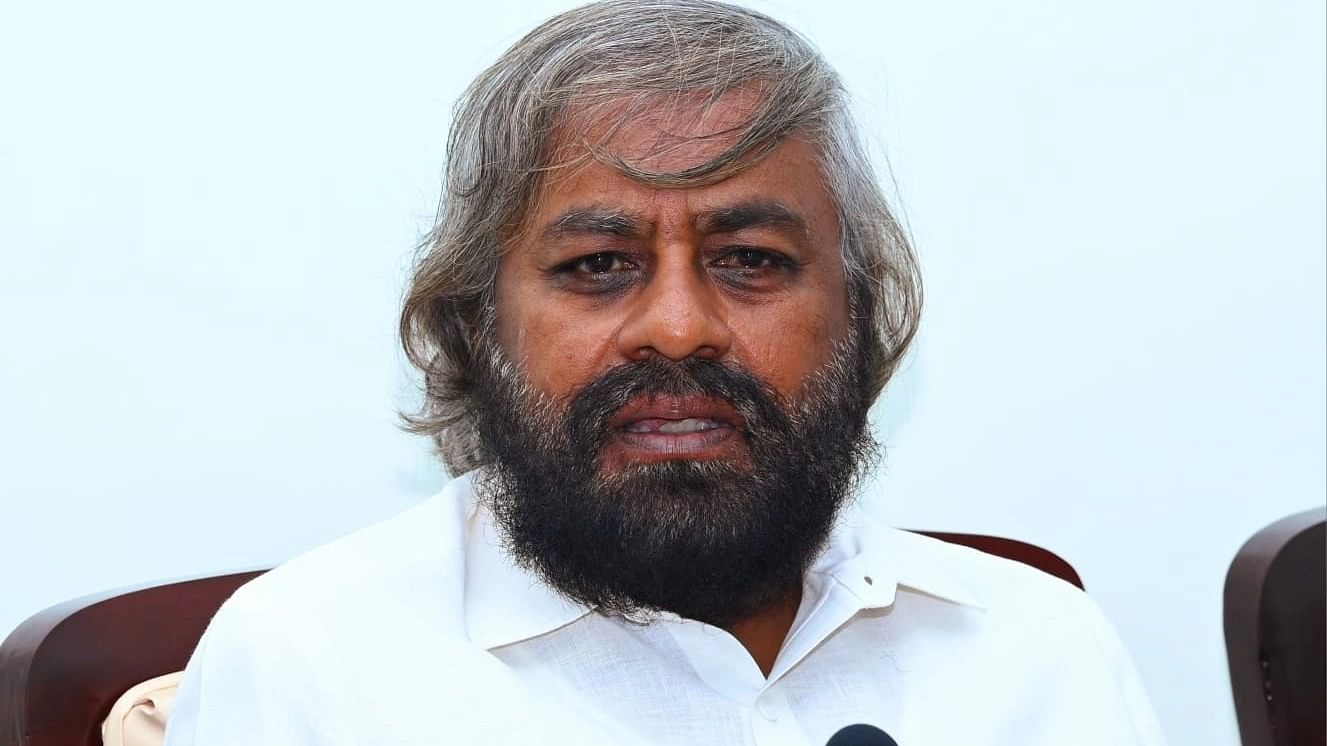
Karnataka Forest Minister Eshwar B Khandre.
DH Photo
Bengaluru: Responding to Kerala's plea for allowing night traffic on the Bandipur-Sultan Bathery (Wayanad) road inside the tiger reserve, Forest Minister Eshwar B Khandre on Tuesday said vehicles may be allowed in in emergency situations.
During his visit to Bandipur, which has witnessed a significant number of man-animal conflict cases, the minister examined animal movement on the road. This road had been closed to traffic following the death of wild animals struck by vehicles.
Traffic movement is closed between 9 pm and 6 am on the roads connecting Kerala and Tamil Nadu. While Tamil Nadu has agreed to the ban on the use of a 36 km stretch in the core area at night, Kerala has moved the Supreme Court seeking the lifting of the ban on the road (National Highway 212), of which 24.5 km passes through the core area of the tiger reserve. The Supreme Court upheld the ban in 2019.
Gathering details of the number of vehicles passing through the checkposts during the day, Khandre held a meeting with the officials on various issues, including a plea by the Kerala government to allow night traffic.
Currently, only ambulances and five buses each from Karnataka and Kerala are allowed on the road during the night. The minister sought details of the wildlife casualties caused by the movement of vehicles. "In case of emergency situations, we will take the details of the persons in the vehicles and allow them," he said.
'Rope in indigenous people to check forest fire'
The minister inspected the department's preparations to check the spread of fire and told the officials to rope in the indigenous community. "Members of Adivasi communities are experts at firefighting. Their services should be utilised. Strict action should be taken against the people who are deliberately causing forest fires," he said.
Taking stock of the extent of invasive species in the Bandipur and BRT Tiger Reserve as well as Kabini Wildlife Sanctuary, the minister suggested allocating more funds through the Tiger Conservation Foundation for removing weeds like Lantana.
Khandre also visited the anti-poaching camp and spoke to the personnel.